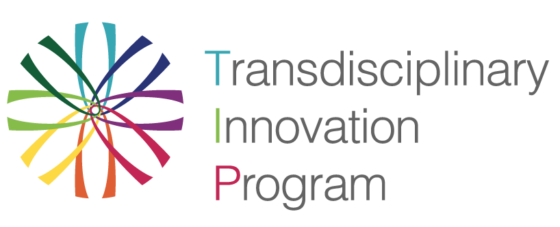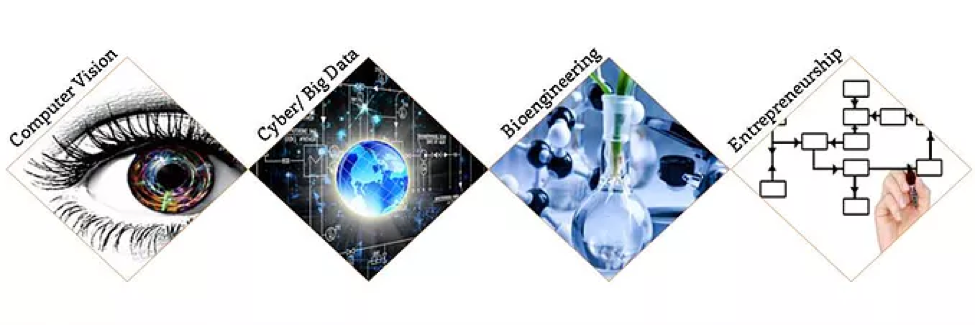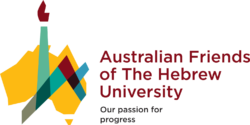
Application is now open for June 2017
To enrol for 2017 course please click here.
The Trans-disciplinary Innovation Program (TIP) is a new cutting edge international platform, which provides an intense educational program that weaves together computer vision, big-data/cyber and bioengineering. The program offers an unprecedented opportunity to personally interact with Nobel Laureates, to work in heterogeneous teams under the mentorship of leading scientists and entrepreneurs, and to pitch ideas to investors.
TIP brings together enterpreneurs, business leaders, scientists and engineers from around the world for the purpose of developing innovations through a trans-disciplinary approach to cutting edge areas originating from some of the greatest achievements of humanity.
TIP exposes participants to a culture of innovation and exploration through a world-class curriculum and mentorship, hands-on training workshops, interactive group discussions, behind-the-schenes tours at emerging startups, onsite visits to major technology companies and, as part of a final project, an opportunity to pitch their ideas to a panel of investors. Graduates will receive a certificate of completion. Participants have the option to take the course for university credit.
Program Details
Learn about the structure and content of TIP please click here.
Important dates:
Application open: November 1st, 2016
Early registration deadline: February 1st, 2017
Early acceptance notifications: February 15th, 2017
Final registration deadline: April 25, 2017
Final acceptance notifications: April 30, 2017
Program dates: June 25, 2017 – August 17, 2017
Before submitting your application to the program please note that:
- Everyone is welcome to apply, regardless of financial status, formal education, gender, citizenship, etc.
- Participants will be chosen by a selection committee according to their leadership skills, professional experience and future plans as described in the application form.
- Tuition for the program is: $5,500 (to be paid upon acceptance)
- Tuition includes TIP core program, site visits, lunch, insurance, etc.
- Generally, participants need to arrange their own accommodation, however:
TIP can arrange housing on campus for $1,800 (early registration is required) - Tuition does not include travel expenses
- A limited number of partial to full scholarships are available. If you are planning to apply for a scholarship, early registration is required
- For the summer of 2017, up to 25 students will be accepted to the program.

Computer Vision
Focusing on robotics (humanoid robotics, intelligent cameras, target recognition, visual inspection, content based image retrieval, mobile localization-mapping-mobility, machine learning, contextual image classification), virtual worlds and augmented reality (image-based modeling and rendering, visual sensor network, physical computing, motion caption, 3D interfaces), and applications in home, transportation, security, Internet, entertainment, space, sports and medical diagnostics. We will also explore research in which computer vision intersects with human-computer interaction, video processing, display technology, projector-camera systems, computational cinematography and medical imaging (rapid imaging modalities, functional brain imaging/scanning and point-of-care medical diagnostics). We will discuss future development, uncertainties concerning when computers will match various capabilities of the human brain
Big-Data
Focusing on: applications and implementation of methods in information sciences in various fields: from machine learning and computational biology to cloud computing. We will explore unstructured data, data to knowledge paradigms, network-attached storage, real time data analytics, encrypted search, quantum information and connections to quantum computing, and usage in areas such as: nuclear research, sensor data, social media, and data warehouse augmentation. We will discuss application in genomics, connectomics, simulations, meteorology, environmental research, customer targeting, business and performance optimization, security and law enforcement, optimization of cities and countries (smart cities) and financial trading.
Bioengineering/Biotechnology
Focusing on three areas: medical devices; agriculture and animal technology; genome technologies and personalized medicine. We will explore: genomics and proteomics; microfluidics and single-molecule technologies; ultra-rapid, low-cost gene sequencing, statistical and computational extrapolations of large biological databases; 4P medicine: personalized, predictive, preventive, participatory; high-speed, full-genome, consumer-based sequencing; personal SNP analysis and ethics; Intelligent design: ultra-rapid, low-cost DNA writing; selective gene manipulation/substitution; plant and food engineering; ethics of germline modification and RNA interference); We will discuss the future of biomedicine, neuroscience, and human enhancement and its impacts on human health and performance in six areas: Stem cells, regenerative medicine, tissue engineering, biomaterials, artificial organs and targeted therapies (minimally invasive medical devices, robotic surgery, designer drugs, and identification & targeting of cancer stem cells).
Entrepreneurship
Combining new ventures theory and practice, we will explore the process of new venturing, starting from understanding what is innovation and how should we create new ideas to meet real market needs, going through the research process of the market and the industry, including customer definition and validation, and the exploration of existing solutions. We will also deal with: solution screening techniques and models, writing business plans, defending entrepreneur’ intellectual property rights, choosing the right investors at different stages of the new venture, and presenting the new venture story in a compelling way. We will discuss team dynamics and culture issues, what is sustainable competitive advantage and how can new ventures achieve it, as well as the programs that the Israeli government, academia, and corporates offer to support new ventures.
